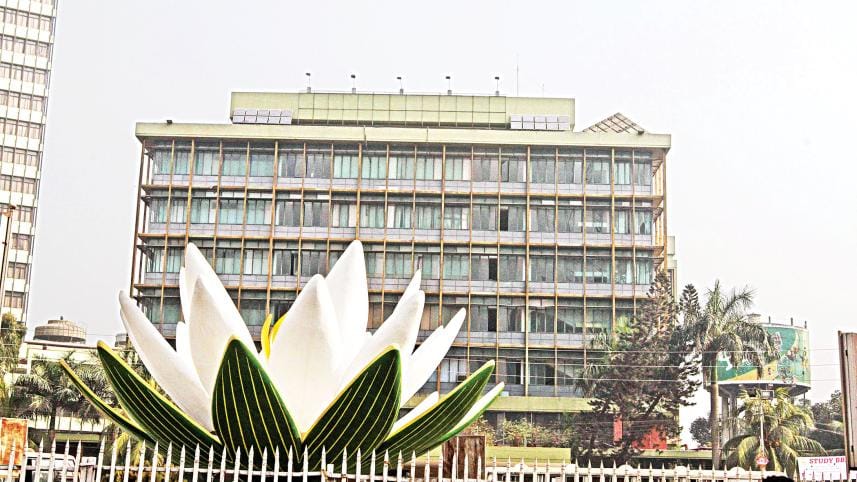Independence of BB is imperative

An independent central bank is important to enforce strict governance standards to ensure low levels of non-performing loans (NPL) and bring about discipline in the financial sector, stated think tank Policy Research Institute (PRI) of Bangladesh yesterday.
"Enhanced autonomy of the central bank would insulate monetary policy from short-term political pressures, enabling more effective inflation targeting and exchange rate management," said Ashikur Rahman, principal economist of the PRI.
He was addressing a discussion on the macroeconomic situation of the country organised by the PRI in partnership with the Australian government at the PRI office yesterday.
The root causes of high NPLs are weak governance, political interference, poor recovery practices, and fragmented oversight. On this ground, it is imperative to ensure the independence of the central bank, Rahman said.
By reducing the scope for political interference in lending and oversight, an independent central bank can enforce stricter governance standards, improve loan recovery, and help reverse the longstanding deterioration in asset quality, he said.
The NPLs have reached 24 percent of total loans in FY25, he said.
Economic stability has been painstakingly achieved through contractionary fiscal and monetary policies, and through difficult measures to restore governance in the banking sector, said Rahman.
These can yield long-term dividends only if Bangladesh invests in the capacity and autonomy of its economic institutions, most importantly Bangladesh Bank, he said.
History offers a cautionary lesson, he said.
The deliberate erosion of Bangladesh Bank's independence and technical capacity has enabled the rise of economic oligarchs who have operated with impunity, extracting rents in a manner reminiscent of the East India Company, said Rahman.
"Their unchecked financial irregularities pushed our banking system to the brink of collapse, undermining public trust and weakening the economy's foundations," he said.
To prevent any repeat of this near meltdown, the interim government must commit to granting complete independence to Bangladesh Bank and adopt a governance model comparable to the Bank of England or the Federal Reserve in the United States, he said.
Such a reform would empower the central bank with both the authority and the technical capacity to safeguard financial stability, enforce discipline in the banking sector, and credibly apply an orthodox monetary policy, said Rahman.
In effect, central bank independence is no longer a desirable policy choice—it is a fundamental necessity for Bangladesh's economic future. Without it, stabilisation will remain fragile, vulnerable to capture, and at constant risk of reversal, he added.
Addressing the event as chief guest, former BB governor Mohammed Farashuddin said the government should not persecute everybody in order to create congeniality so that the private sector can do business and create jobs.
The government should identify some 10 to 12 "delinquent" companies, and it should go all the way to punish them by collecting evidence and let all other companies go about their business, he said.
"We must create a condition of congeniality to let the economy grow. It is not good to persecute everybody," he said.
Money laundering takes place in almost all countries. According to a Washington-based think tank, $7 billion has been laundered on average from Bangladesh every year since 2004, said Farashuddin.
"But good friends of mine heading a taskforce have found it to be $17 billion… We should not dramatise… we should go slow, steady, and do our jobs," he said.
He lauded the government for the financial reforms it has been bringing about, saying, "This is the best financial reform in many years in Bangladesh."
The former BB governor also praised the government for purchasing food grains in large amounts, which raised food stocks.
He said the country needs large amounts of venture capital to identify and support cottage, small and medium enterprises, and that would solve underemployment, unemployment, and disparity.
Rizwan Rahman, former president of the Dhaka Chamber of Commerce & Industry, urged the creation of an instrument for ensuring accountability.
A national accountability commission can be formed involving members of civil society, he added.
Kamran T Rahman, president of the Metropolitan Chamber of Commerce & Industry, Dhaka, urged a focus on ensuring energy for the private sector and increasing revenue mobilisation.
 For all latest news, follow The Daily Star's Google News channel.
For all latest news, follow The Daily Star's Google News channel.
Comments